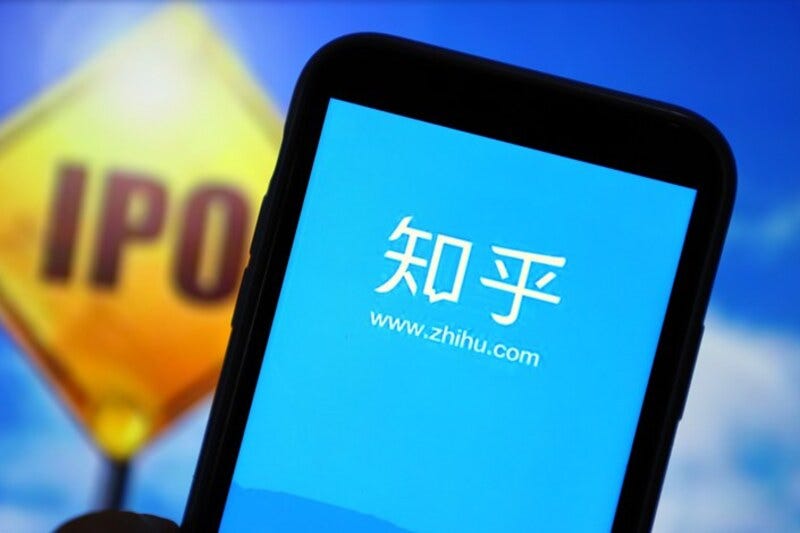CX Daily: China Flags Expansion of Red-Hot REITs to Boost Infrastructure Investment
China’s central bank cuts the reserve requirement ratio by a quarter of a percentage point.
Top Stories
REITS have been a long time coming in China. The government has proceeded cautiously, partly out of concern they could fuel price increases in residential property. Photo: VCG
REITs /
In Depth: China flags expansion of red-hot REITs to boost infrastructure investment
China’s efforts to bolster economic growth this year and raise money to fund infrastructure projects could provide fresh momentum for the country’s fledgling market for real estate investment trusts (REITs).
Regulators have been testing the waters over the past year and have so far allowed 12 publicly offered infrastructure-focused REITs to sell shares on the Shanghai and Shenzhen stock exchanges. They’ve been a big hit with investors — as of Thursday, unit prices of nine of them juimped at least 20% since listing.
Now the government is looking to expand the pilot program which will help raise much-needed cash for companies involved in funding infrastructure such as highways, waste disposal and industrial parks.
Truck drivers /
In Depth: Suppliers and buyers suffer as Covid curbs stop truckers in their tracks
A sludgy mix of rain and snow hit Northeast China’s Changchun city on Yang Guang’s seventh day stuck in his truck after a chance trip left him entangled in Covid restrictions and unable to drive on.
Yang was one of many intercity truck drivers who were either stranded in virus-hit regions or stuck between destinations for days due to strict Covid control measures. Some faced running out of food, and others would soon have trouble making ends meet.
The headquarters of the People’s Bank of China on Monday. Photo: IC Photo
Liquidity /
PBOC cuts Chinese banks’ reserve requirement, releasing $83 billion
China’s central bank announced Friday that it will cut the amount of cash financial institutions need to hold in reserve, releasing 530 billion yuan ($83.1 billion) of liquidity into the financial system.
The move comes as the country is fighting its worst wave of Covid outbreaks, while the war in Ukraine has pushed up commodity prices, adding to the downward pressure on its economy.
The People’s Bank of China (PBOC) said it will cut the reserve requirement ratio (RRR) for financial institutions by 25 basis points, or a quarter of a percentage point. The reduction will take place April 25.
Mortgage /
Chinese banks expand mortgage rate cuts to bolster housing market
Banks across China joined the parade of cutting mortgage rates for homebuyers in a broadening effort to shore up the beleaguered real estate market, which is weighing on an economy struggling with China’s worst Covid-19 resurgence.
Since March, banks in more than 100 cities have lowered borrowing costs according to conditions of their business operation and local market to address weakening market demand, Zou Lan, head of financial markets at the People's Bank of China (PBOC), said Thursday at a briefing.
Banking /
Exclusive: China Construction Bank picks Postal Savings Bank chairman as new president, sources say
China Construction Bank Corp. (CCB), the world’s second-largest commercial bank by assets, picked the chairman of Postal Savings Bank of China Co. Ltd. (PSBC) as its new president, sources with knowledge of the matter told Caixin.
Zhang Jinliang, 52, will succeed Wang Jiang, 58, who left the top job at CCB in early March to head state-owned financial conglomerate China Everbright Group Ltd.
Singapore /
Analysis: Singapore’s Lawrence Wong is a tested technocrat tossed into turbulent times
Singaporean Finance Minister Lawrence Wong, whose political star in the city-state has been on the rise since the start of the pandemic, has been chosen by his fellow ministers as the leader-in-waiting of the so-called “fourth generation team” (4G) of the ruling People’s Action Party (PAP).
The 49-year-old’s rocket-like rise has a lot to do with his widely acclaimed performance as co-chair of the interagency Covid-19 Response Task Force, as well as the unexpected departure of the previous heir apparent, Deputy Prime Minister Heng Swee Keat.
Quick hits /
China puts new financial holding companies in systemic risk management
JPMorgan’s top China banker steps down in leadership change
Zhihu, which operates a Quora-like website, has raised $106 million in an additional primary listing. Photo: VCG
Listing /
Facing uncertainty in U.S., Chinese Q&A platform Zhihu turns to Hong Kong
Online Q&A platform Zhihu said it raised HK$834 million ($106 million) in a second primary listing in Hong Kong, about 38% below its planned fundraising cap, as it faces the possibility of having to abandon its U.S. listing.
Zhihu Inc., which operates a Quora-like website, became the latest U.S.-traded Chinese company to seek a second listing closer to home due to an ongoing audit dispute between U.S. and Chinese authorities.
Zhihu will receive no proceeds from the stock sale because the shares on offer belonged to four existing company shareholders — Sinovation Ventures, Qiming Venture Partners, SAIF Partners and Capital Today.
Steel /
China’s steel stockpiles swell as Covid crimps demand and curtails deliveries
China’s steel inventories hit a two-year peak this month as pandemic controls curbed demand and disrupted transportation in major hubs like Shanghai and elsewhere in the Yangtze River Delta.
As of April 10, China’s major steelmakers held 18.5 million tons of the metal, representing a jump of 43% from the same period in January and 19% year-on-year, according to the China Iron and Steel Association (CISA). The Covid-19 outbreaks have dragged the demand for steel to a “historic low,” Huatai Futures Co. Ltd. wrote Thursday in a research note.
TSMC /
TSMC reports healthy profit growth driven by demand for high-end computer chips
Taiwan Semiconductor Manufacturing Co. Ltd. (TSMC), the world’s largest contract chipmaker, reported a solid uptick in revenue and profit in the first quarter, driven by fast-growing demand for chips used in cars and high-performance computers.
In the three months through March, TSMC raked in NT$491.1 billion ($17.6 billion) in net revenue, up 35.5% year-on-year, according to its Thursday earnings report. Net profit attributable to shareholders jumped 45.1% to NT$202.7 billion.
Quick hits /
Trains crash on China’s key coal-hauling line
Tesla staring down loss of 40,000 EVs due to Shanghai lockdown
China plans to build out wind and solar power at a record pace this year
Tech Insider /
Covid hits supply chains, blockchain startup to buy French game developer










